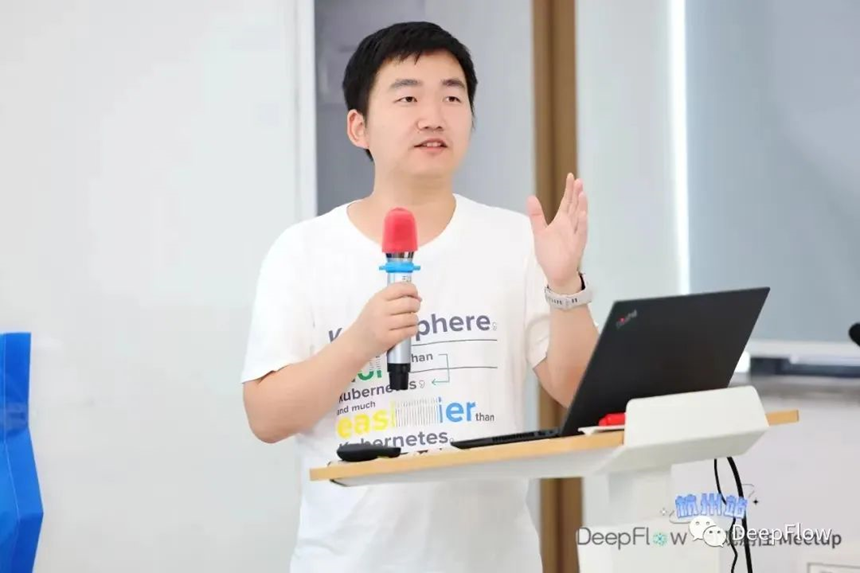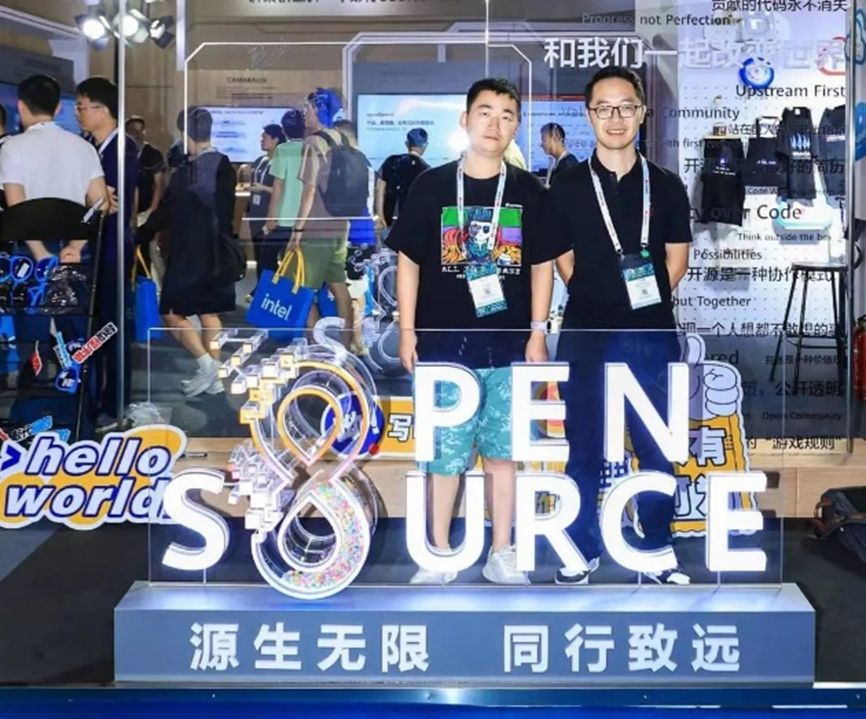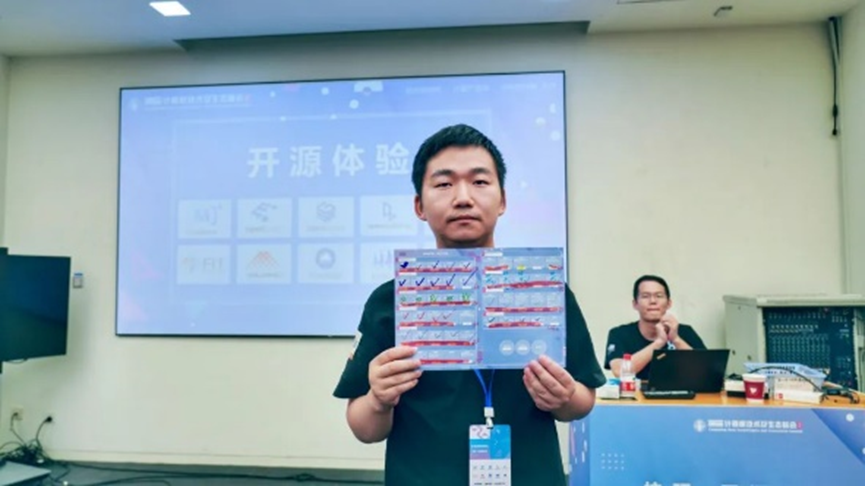Prev Post
Pios

The term "open source" is no stranger to both researchers and IT engineers. Open source code, open source software, open source platform, open source community... Nowadays, "open source" is not only a technology and business ecosystem, but also a spirit and culture rooted in the hearts of scientific and technological (S&T) workers. It represents openness, collaboration, progress and sharing, to overcome technical barriers and share S&T achievements.
ZHU Yaguang is an engineer at the Research Center for Space Computing System of Zhejiang Lab (ZJ Lab), a super user of Github, and a member of several open source community technical committees in China. The year 2024 marks the 10th year since he worked with open source.
Thanks to the 10-year open source experience, ZHU Yaguang has improved his technical skills and also gained a profound understanding of the concept of open source in practice.

On September 22, 2014, I signed up for GitHub. From that day on, open source has become an indispensable part of my technology career. I first got to know "open source" just because I thought the term "open source" was cool, and I felt fresh and excited about joint research and development with global developers. After graduation, I entered the workplace and began to engage in cloud-native work, thus fostering a closer tie with open source.
I get involved in open source work by leading major projects or making some small contributions thereto. Originally, I intended to benefit from using open source software, but I found that some software didn't work well, so I began trying to solve problems and communicating with other developers on the GitHub issue. Starting with the modification of translations, I fixed some simple problems such as nonstandard codes and unclear code comments, and then tried to solve complex algorithmic problems. Gradually, I discussed and fixed bugs with contributors and participated in offline technology-sharing activities, thus, I have been part of open source communities.
I get involved in open source work by leading major projects or making some small contributions thereto. Originally, I intended to benefit from using open source software, but I found that some software didn't work well, so I began trying to solve problems and communicating with other developers on the GitHub issue. Starting with the modification of translations, I fixed some simple problems such as nonstandard codes and unclear code comments, and then tried to solve complex algorithmic problems. Gradually, I discussed and fixed bugs with contributors and participated in offline technology-sharing activities, thus, I have been part of open source communities.


ZHU Yaguang's Active Involvement in Open Source Practices Contributes to the Building of Open Source Communities
In 2020, I left my last job and joined ZJ Lab. Although my job changed, my passion for open source projects remains constant. At present, I am working on the development of cloud-native technologies and computing infrastructure. Utilizing open-source projects not only allows for the rapid resolution of research tasks but also ensures the timely update and iteration of my technology stack, which enhances my understanding of technology.
ZJ Lab encourages us to practice open innovation represented by "Open Source Innovation". We believe that through exchanges and cooperation with open source communities, innovation institutions can share resources and learn from each other to jointly promote S&T innovation and development. Last year, SUN Ninghui, an Academician of the Chinese Academy of Engineering, talked about the idea of addressing bottlenecks through an open-sourcing path during his presentation at ZJ Lab. The idea involves organizing research efforts to mobilize various stakeholders, to reduce costs across the entire industry chain. Of course, open sourcing is not just about releasing source code and, more importantly, the establishment of collaborative development processes and community governance mechanisms. In this regard, ZJ Lab has made a lot of efforts, such as building the GitLink Open Source Center with CCF, developing open source products, and holding open source talent training sessions. ZJ Lab is building a global-oriented platform for open innovation cooperation and exchanges, which explores open code, open data, open computing power and open platforms in hopes of attracting scientists from all over the world to pursue joint contribution, extensive consultation and shared benefits. This is our specific practice of open source innovation, allowing us to voice our ideas and contribute our strengths to the open source ecosystem.

In August 2021, at the Computing Root Technologies and Ecosystem Summit of the 2nd ICT Software Technology Conference (Hangzhou), ZHU Yaguang tirelessly engaged in marathon development across 10 community booths, and emerged victorious with the highest points.
Embarking on the road to go open-source, ZJ Lab is not destined to be "alone". The Outline of the 14th Five-Year Plan for Economic and Social Development and Long-Range Objectives Through the Year 2035 of the People's Republic of China explicitly proposes that "... support the development of innovation consortia including open source communities, improve open source intellectual property rights and legal systems, and encourage enterprises to make available open source codes, hardware design and application services", which means that clear goals are set for the open source business. As digitalization and intelligentization have penetrated thousands of industries, the value and definition of open source are also increasing and deepening. From the initial developer community to the rise of digital infrastructure such as open-source AI foundation models and HuggingFace, open sourcing is not just for code sharing, and it has become a global innovation force that extends beyond the code itself and embodies the spirit of collaboration, innovation and sharing. Through open sourcing, institutions can collaborate more efficiently, and innovate faster with more reliable technical quality assurance.
In my opinion, open source is like a bridge connecting people, and it is also the cultural embodiment of "all for one, one for all". People from all over the world are allowed to jointly build open source ecosystems, however distantly, in order to promote S&T innovation and economic and social development.











